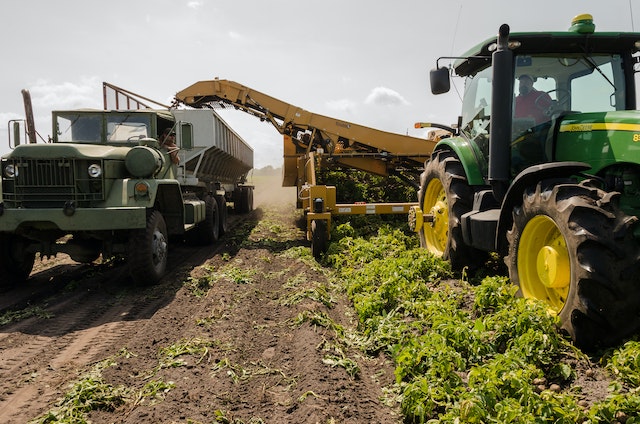Agriculture, the backbone of civilization, has played a pivotal role in human progress for thousands of years. Today, as we face pressing challenges such as climate change, food security, and environmental sustainability, the importance of agriculture takes on even greater significance. In this article, we will explore the transformative power of agriculture and its potential to nourish communities, promote sustainable practices, and shape a better future for generations to come.
Ensuring Food Security:
Our food supply heavily relies on agriculture as its primary source. By embracing innovative farming techniques, modern technologies, and sustainable practices, we can enhance agricultural productivity and ensure food security for a growing global population. Empowering small-scale farmers, promoting agricultural diversity, and investing in resilient and climate-smart agriculture are crucial steps toward achieving food security.
Sustainable Resource Management:
Agriculture has a profound impact on natural resources, including land, water, and biodiversity. Embracing sustainable farming practices, such as organic farming, precision agriculture, and agroforestry, minimizes the depletion of resources, reduces pollution, and preserves ecosystems. By adopting regenerative agricultural practices, we can restore soil health, mitigate climate change, and protect the planet for future generations.
Rural Development and Poverty Alleviation:
Agriculture is a vital sector for rural economies, providing employment opportunities and contributing to economic growth. By investing in agricultural infrastructure, market access, and farmer training, we can foster rural development and alleviate poverty. Empowering smallholder farmers, especially women and youth, through access to credit, education, and technology, enables them to enhance their livelihoods and participate in the broader economy.
Climate Change Adaptation and Mitigation:
Climate change impacts and is influenced by the agricultural sector. Extreme weather events, shifting rainfall patterns, and rising temperatures pose challenges to agricultural productivity. However, agriculture also has the potential to mitigate climate change by sequestering carbon in soils, adopting climate-smart practices, and promoting renewable energy solutions. By implementing climate-resilient agriculture and reducing greenhouse gas emissions, we can foster sustainable food production while addressing climate challenges.
Technological Advancements in Agriculture:
Advancements in agricultural technologies, such as precision farming, biotechnology, and digital farming, are revolutionizing the industry. These innovations enhance productivity, optimize resource use, and improve efficiency. From smart irrigation systems to remote sensing and data analytics, technology empowers farmers to make informed decisions, increase yields, and reduce environmental impact.
Conservation of Biodiversity:
Biodiversity can be significantly influenced by agricultural practices. However, sustainable agricultural systems, such as agroecology and organic farming, promote biodiversity conservation. By protecting and restoring natural habitats, implementing integrated pest management, and preserving traditional crop varieties, we can maintain ecological balance and safeguard the genetic diversity essential for resilient food systems.
Responsible Water Management:
Water scarcity is a critical challenge in agriculture, with irrigation accounting for a significant portion of global water consumption. Implementing efficient irrigation systems, promoting water-saving practices, and investing in water management infrastructure is vital for sustainable agriculture. Embracing techniques like drip irrigation and precision water management enables farmers to maximize water use efficiency and minimize wastage.
Collaboration and Knowledge Sharing:
Addressing the complex challenges in agriculture requires collaboration and knowledge sharing among stakeholders. Governments, farmers, researchers, and industry players must work together to develop and disseminate best practices, share research findings, and foster innovation. Platforms for knowledge exchange, farmer cooperatives, and public-private partnerships facilitate collective action toward sustainable agricultural development.
Agriculture holds immense potential to address critical global challenges and build a sustainable future. By prioritizing sustainable practices, embracing technology, empowering farmers,




